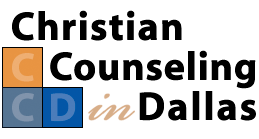The Gift of Counseling
Five years ago I went to counseling. I had been thinking about it, yet found myself reluctant to do so. Then my wife started seeing a counselor and I decided to follow her lead. Yes, counselors also need counseling and sometimes need a little nudge in that direction.
I was immediately glad I went. My counselor began addressing the concerns I brought him and I began to feel a new freedom and lightness. I also reacquainted myself with what it felt like to sit on the other side of the room. Most counseling programs ask their students to go to a few sessions of counseling, but once the requirement is fulfilled many of us stop going. We’re the professionals, after all. And that is unfortunate because it is possible to forget what it is like to sit across from someone you’ve never met and begin trusting them with the intimate details of your life. It’s not something we should ever forget.
When a person goes to counseling it is one of the most vulnerable times in their life. Nobody ever shows up in my office saying, “my life is going great and I just wanted to pay someone to talk about it.” They’re here because something in their life is broken, perhaps their marriage or their relationship with a child. They’re struggling with anxiety or depression or a relentless inner critic. It ought also to give us more empathy for someone with a diagnosed mental illness who has spent years seeking help, seeing psychiatrists, psychologists, and psychotherapists to get a handle on their issue. They’re often treated by those around them as less than. Mental health issues are often spiritualized, like this tweet I recently read: “Instead of sitting with a psychiatrist, why not try sitting under a solid preacher.” We can all benefit from solid biblical teaching, but to treat someone with anxiety or depression as though their issues are caused by a lack of Bible knowledge is terrible.
To be sure, there is an important distinction to be made between mental health and mental illness. While we may have concerns about our mental health not all of us have a diagnosed mental illness. Processing a difficult ending—to a job, to a relationship—is painful yet not the same as someone who tries to function every day with a diagnosed mental illness, say bipolar disorder or major depression. Yet in another sense, we are more alike than dissimilar. As Harry Stack Sullivan said, “We are all much more simply human than otherwise, be we happy and successful, contented and detached, miserable and mentally disordered, or whatever.” Yet if we’re not careful we can slip into us and them thinking: “I’m not like them. They have serious issues. I just need a little help with my anxiety.”
It can feel demeaning to ask for help which is why so few of us do it. The toilet is clogged? I can take care of that. Just don’t make me ask for help with understanding why my relationships aren’t going well. Yet if we humble ourselves and ask for help we get new insight and understanding. God uses this to transform us. And we get the joy of being helped!
In order to be helped we have to be willing to step out of the role of helper and see ourselves as people who are every bit as broken as those with a diagnosis of mental illness. It’s just easier for some of us to hide our brokenness, to convince ourselves and others that we are just fine, thank you. The greatest way we may be helped is in learning to love more like Jesus. He did not shun broken people, but invited them to be close to him, along with the down and outers and people who had seemed to mess up their lives beyond repair. Jesus told the parable of the prodigal son because his critics were saying “you must be doing something wrong because of the kind of people who are attracted to you” (Luke 15:1-2).
It’s easy to dismiss therapy as for those with mental illness or those with a relationship issue that’s giving them a hard time. The truth is, nobody “goes pro” in relationships and we often miss our contributions to relational difficulties. We have secret selves, things that are known by us and unknown by others. We fear the loss of relationship–with God and people–if those parts of us were known. And we have blind spots, things others see about us that we don’t see about ourselves, and those things hurt us and others. The goal of counseling is to eliminate secret selves and blind spots so we are not weighed down nor weigh others down by them. It’s part of accepting Jesus’ invitation to the easy yoke and the light burden. Counseling was a gift from God to unshackle me from secret selves and blind spots (a few of them, anyway) so that I could be free to love him and others and to accept his love for me.
